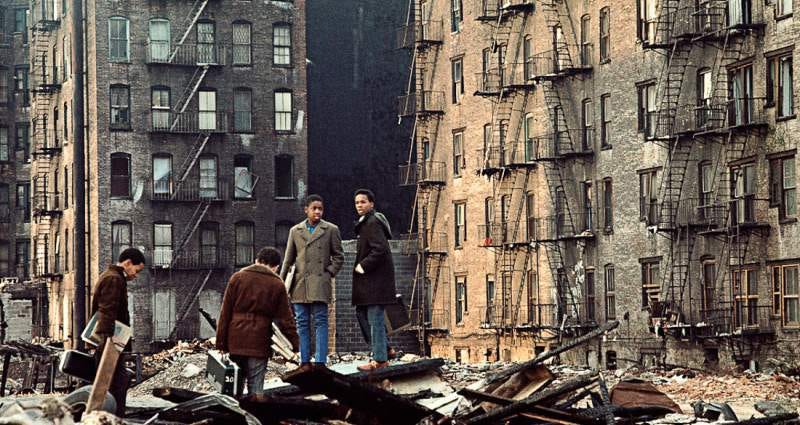Arriving at Ivy League college, Gonzalez writes, ‘I soon realized that silence was more than the absence of noise; it was an aesthetic to be revered. Yet it was an aesthetic at odds with who I was.’
Why do rich people love quiet? When an explanation for why isn’t forthcoming, ask why not? Why don’t poor people love quiet? Why do poor people love noise: noise that makes it impossible to carry on a conversation—or to think?
The easy answer, which seems correct since no harder or more illuminating explanation is forthcoming, is that the poor lack interiority—that feature of the human condition which, we’re told, St. Augustine was the first to discover. Nothing of interest is going on in their heads. They demand noise to alleviate the tedium of their inner lives. Poor people are, by and large, intellectually as well as materially impoverished and so poor neighborhoods are a mind-numbing cacophony.
We lived in 20-something poverty on Stanton Street in New York City’s Lower East side just east of Attorney Street, the extension of Avenue B south of Houston, before gentrification. Our neighbors lived publicly, in the street and on the stoops, making noise against the booming of innumerable boom-boxes. The kitchen window of our fourth-floor tenement walk-up opened onto an enclosed courtyard into which tenants dumped garbage out of their windows and the ambient neighborhood noise was regularly punctuated by the sound of cascading trash. Youths hung on street corners harassing me as I walked to the subway with a chorus of ‘chickie, chickie, chickie’ and worse. On one particularly festive Saturday night they burned a car in an empty lot nearby.
As right-thinking leftist gentry we are supposed to applaud Gonzalez’s celebration of proletarian noise which she characterizes as the sound of her ‘identity’. So, in one local discussion of affordable housing, fellow gentry living in the bourgeois Ranchos of North County expressed their admiration for the ‘vibrant’ inner-city neighborhoods where they declined to live. According to the received view any expression of distaste for the behavior of ‘The Poor’, a code word for ‘urban minority underclass’, was racist. We were not to affirm them in spite of their ‘vibrancy’, including not only noise but also graffiti displays, which the NYTimes magazine featured as art, but because of it.
I am happy not to live in a ‘vibrant’ neighborhood and so are my neighbors in the majority minority city where I now live. We, an ethnically diverse lot, are delighted that we don’t have to deal with youths loitering on street corners to harass women or burning cars for weekend entertainment, with neighbors dumping trash in the street, or with the endless, mind-numbing noise of poverty.



